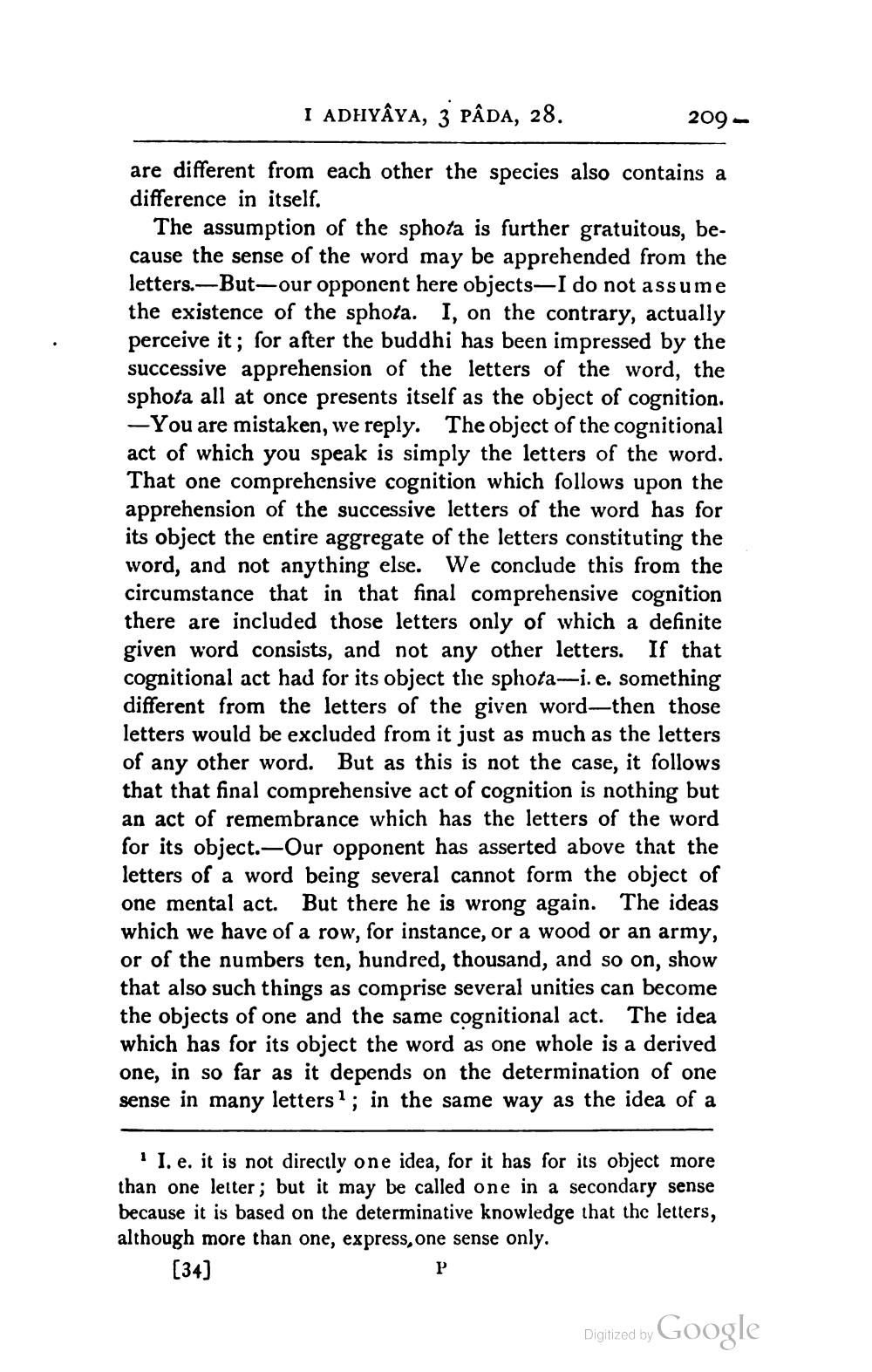________________
I ADHYÂYA, 3 PÂDA, 28.
209
are different from each other the species also contains a difference in itself.
The assumption of the sphota is further gratuitous, because the sense of the word may be apprehended from the letters.--But-our opponent here objects—I do not assume the existence of the sphota. I, on the contrary, actually perceive it; for after the buddhi has been impressed by the successive apprehension of the letters of the word, the sphota all at once presents itself as the object of cognition. - You are mistaken, we reply. The object of the cognitional act of which you speak is simply the letters of the word. That one comprehensive cognition which follows upon the apprehension of the successive letters of the word has for its object the entire aggregate of the letters constituting the word, and not anything else. We conclude this from the circumstance that in that final comprehensive cognition there are included those letters only of which a definite given word consists, and not any other letters. If that cognitional act had for its object the sphotami.e. something different from the letters of the given word—then those letters would be excluded from it just as much as the letters of any other word. But as this is not the case, it follows that that final comprehensive act of cognition is nothing but an act of remembrance which has the letters of the word for its object. Our opponent has asserted above that the letters of a word being several cannot form the object of one mental act. But there he is wrong again. The ideas which we have of a row, for instance, or a wood or an army, or of the numbers ten, hundred, thousand, and so on, show that also such things as comprise several unities can become the objects of one and the same cognitional act. The idea which has for its object the word as one whole is a derived one, in so far as it depends on the determination of one sense in many letters ? ; in the same way as the idea of a
'I. e. it is not directly one idea, for it has for its object more than one letter; but it may be called one in a secondary sense because it is based on the determinative knowledge that the letters, although more than one, express, one sense only.
(34)
Digitized by
Digized by Google




